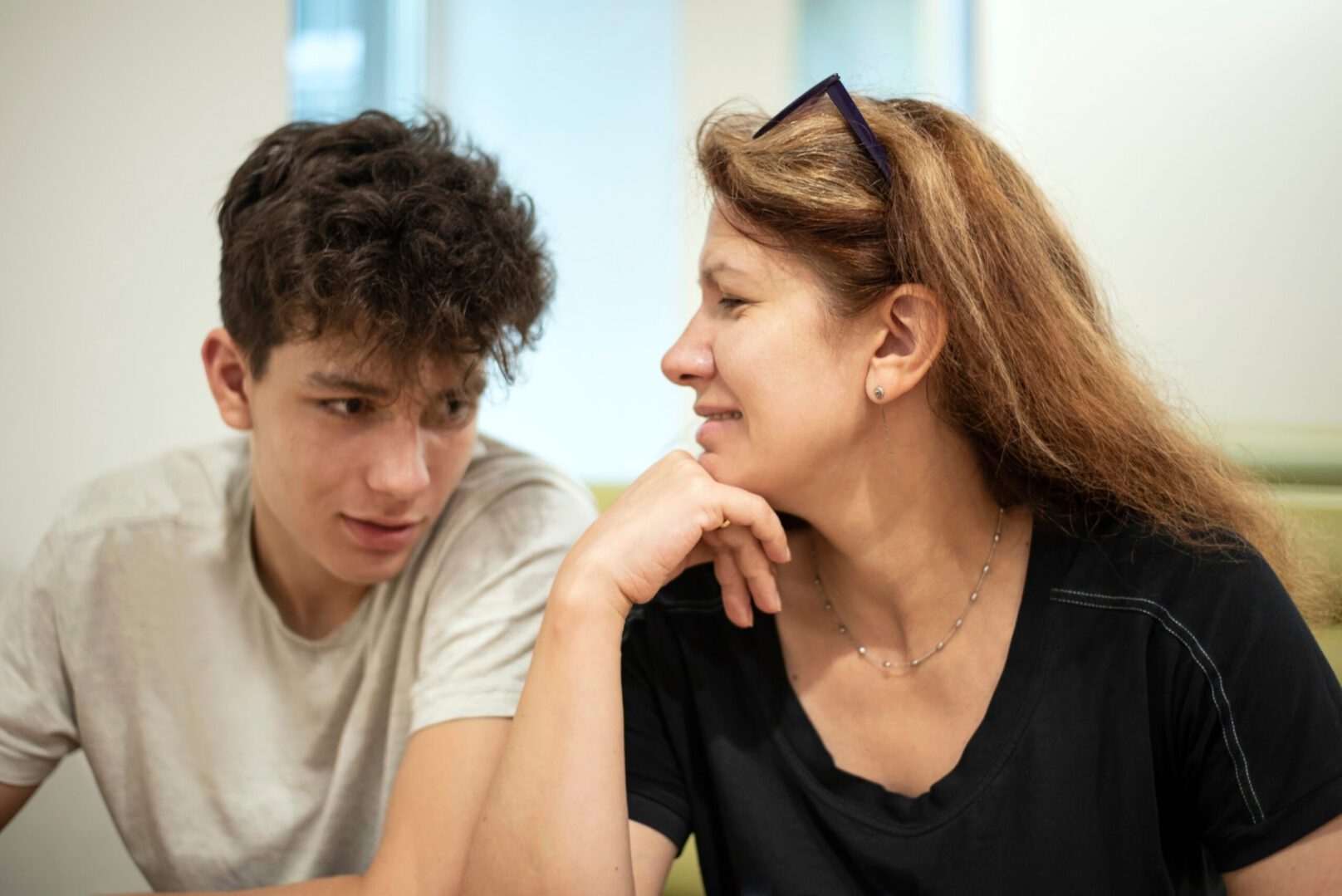
Communicating with your teenager is not always easy. Finding the time to have a face-to-face conversation – without phones, activities, or other distractions – can feel impossible. We talked with one of Lena Pope’s Family Specialists, Trey Webster, about how he encourages caregivers to connect with the teens in their lives.
“Teens are very observant – even when you think they’re not looking, they’re looking,” Trey shared. “They notice when parents are involved and if they care. They see who shows up and who is trying. When a teen sees you show up, even when they don’t say anything, they do notice and recognize what’s happening more than we realize.” It can be tough for parents to connect with their teens because you have to be willing to be open and vulnerable. And for teens, they would rather spend time with their friends or on social media. Having a conversation with eye contact with a parent or caregiver is not something all teens are going to be excited to do. As the parent of a teen, sometimes you have to give a little to get a little. And you have to remember to not take it all personally. “Teens are still growing, and their brains are still developing and sometimes they don’t get it right. We’re learning together how to change our voice tone and ask instead of demand things,” Trey reminds.
“Getting the cellphone out of a teen’s hand is almost like trying to get superglue off your hands. But you’re the parent. You can share your concerns with them to help them understand why you’re wanting to spend time talking. You can share things like, ‘It’s important to me that we can communicate because I care about you and I’m on your team. I see how tough it can be for you, and I want to help. We have to talk to do that.’ It won’t be the same every time you spend time together, but it’s a start,” said Trey.
How Can I Get My Teen To Start Talking?
Work in increments. Try something like offering to go to a restaurant or fast-food place of their choice and buy their favorite dessert, or to a coffee shop and buy their drink. And in return they sit with you, cellphones off, and talk for 15 minutes. “Some teens might resist the idea and say something like ‘I don’t feel like talking, we don’t have anything to talk about.’ That’s why it’s important to start small. It can feel intimidating to the parent and the teen to start something new because you don’t know what to expect.” Trey said.
In our Second Opportunity for Success® (SOS) program we do a How Well Do You Know exercise with 16 questions. The teens fill out the questions about their caregiver and the caregiver fills out the questions about their teen. These questions are a great place to start to get to know each other again. Start with 5 questions and build from there. “During the program we see teens and caregivers walking back to their car having conversation instead of just looking at their phones and walking in silence. That’s my favorite night of the program because I can see the walls come down and communication starting to happen,” shared Trey.
Teens notice consistency
“The important thing is getting communication started and not giving up,” Trey said. “It might feel like you have to fight for that time, and you do. But you can regain connection, regain relationship, and start from a clean slate. Sometimes it’s about finding a starting point and remembering it’s never too late. Choose your day, choose your time, and stick with it. Consistency is important in building communication and connection with your teen.”
For some, it may be a little heavy to realize you don’t know basic things about the kids you love. We can rekindle relationships, rebuild relationships, restore what may appear to have been lost and gather it back while they’re still at this age. Now is the time to start.
“In our SOS program, we’re serving youth first-time offenders and their families. I have heard so many parents in group say, ‘And I thought I was the only one!’ or hear another parent share and reply ‘My kid says/does that exact same thing!’ This program has been a way for families to come together and understand we may have some differences, but if we help one another this will be a strong family,” Trey said.
For the past 24 years, our SOS program has served thousands of families and helped those youth learn new skills to help them make more positive choices. And we hear from youth years later who say the SOS program really helped them. Or share that now as they look back they can see how big of a difference the program made in their life. “When I think about the lives Lena Pope has touched through this program, I’m blown away. That’s what we’re here for. Building strong foundations for families.”
Getting to know your teen again and helping them get to know you is hard work, but it’s worthwhile. As you develop that relationship, you realize you can help one another. Your teen can say “Mom, it’s gonna be ok. Or, Dad I see you’re working hard.” And you as the parent can encourage them and say “Babygirl we got this. Or, Son, I’m on your team.” If your family needs help building these skills or learning how to talk to each other, let us know. Lena Pope is here to help your family thrive.